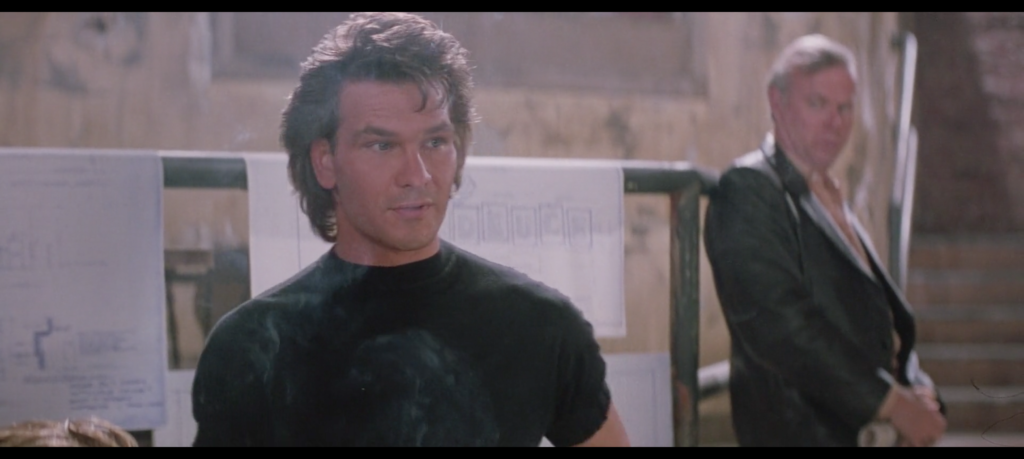“This is the new Double Deuce,” says Frank Tilghman. We are at the start of an all-hands staff meeting, and Tilghman is pointing to the concept art for the bar’s redesign. But standing nearby is his latest hire, Dalton. It is through Dalton, with Dalton, in Dalton that the new Double Deuce will be achieved. Dalton embodies the new Double Deuce. He is its future.
When Dalton takes over as cooler he becomes more than just the chief bouncer. His role is not to handle a series of discrete incidents, but to institute sweeping reforms that will eliminate such incidents forever. “It’s going to change,” he states—not a threat, not a promise, a fact. His bouncers, too, must change for this to take place. As below, so above.
Bouncing on the Dalton Path is a matter of following “three simple rules.”
This is the first.
1. Never underestimate your opponent. Expect the unexpected.
To the uninitiated, Rule One sounds like it ought to be Rules One and Two. The first part dictates that one cannot take victory for granted no matter the look of the foe, wisdom borne out time and time again throughout the film. Old men prove to be exceptionally capable fighters. Heavy men move at speeds men half their size can’t match. And as the Knife Nerds amply demonstrate, even the most rat-faced and weaselly goons can carry death in their denim. You underestimate these men at your peril. Assume anyone you face in open combat, even the bleeders and the sister-sons, can and will kill you if given the chance.
Expecting the unexpected is a different matter, or so it seems at first glance. Sometimes that means anticipating that a would-be assassin has a boot-mounted knife, or that a business dispute will be settled with a monster truck, certainly. But the unexpected could also be advantageous, could it not?
Not for the purposes of Rule One, no. The combination of these two diktats is not arbitrary. By wedding the latter to the former, Dalton suggests that the unexpected always breaks in favor of your opponent: a bootblade stabbing at a human face, for ever. The bouncer must accept this.
But the inverse is also true. If never underestimating your opponent necessarily and coterminously entails expecting the unexpected, it follows that a rational assessment of your allies deems them perfectly reliable. You don’t need to wonder whether your fellow bouncers can help you. You can bank on it. They will never disadvantage you in unexpected ways like your enemies might. Your comrades will be there and be true. You can expect it. “Watch my back and each others’,” Dalton says near the conclusion of the Giving of the Rules. But with the First Rule, he’s said it already.
It’s a bit of an “If you think this sentence is confusing, change one pig” situation, isn’t it: For bouncers to be perfected, they must follow Dalton’s three simple rules, the first of which takes their preexisting perfection for granted. But simply by turning the First Rule around in their minds the bouncers of the Double Deuce are that much further along the Dalton Path. They begin thinking every enemy with the wary respect you show a large animal or an operating piece of heavy machinery. They envision scenarios that will surprise and shock them, and thus begin to take those surprises and shocks in stride. In so doing they become people who are unsurprising, consistent, dependable, stalwart—each man a hidden blade in the boot that is the bouncer corps, expertly wielded by the cooler’s outstretched leg, working in concert against all the goons that were or are or will be.
Tags: dalton, expect the unexpected, never underestimate your opponent, road house, the first rule, the rules

